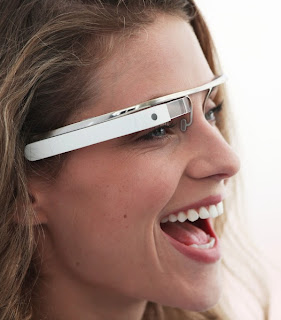Mobiquity: A Semiotic Analysis of Google Glass
Part Two of Three
Connected but Alone
As many skeptics have pointed out, the protagonist in the Google Glass video is depicted as living alone, meeting a friend for a short meeting at a portable coffee shop and then having a virtual meeting with his female friend over a video connection. Many have noted that the future being presented is lacking of human contact, demonstrating the proliferation of social technology to the place where one is more connected than ever and yet, also, more alone.1
This concept video brings into view the reality that people desire connections; this desire for connection is what has driven the proliferation of the Internet and Social Media technology.2 “The Internet may be a virtual community, but still it’s a community that’s readily available in a disconnected world.”3 As we move forward into a virtual world, there will be increased need for relational connection. Dyrness points out “In a world where we struggle not to “lose touch” with one another, Christ has given us this image of himself to hold on to, and by which we orient ourselves…”4 Technology offers Facebook, effectively and successfully providing connection, but people will increasingly desire Face-to-Face time (relationship).5 As the Google Glass video demonstrates, the protagonist is connected like never before, but the skeptics make a solid argument that he simultaneously seems alone. In our increasingly connected but alone world, the church has an amazing opportunity to provide face-to-face community and relationship in a Facebook world.
Instant, Simultaneous and Constant Access to Information
One of the most intriguing aspects of the Google Glass video is the fact that it demonstrates how technology will increasingly make any and all information available on-demand visually (personal schedule, weather, web search), sometimes without prompting (example of the automated suspended subway services announcement in the video). This evolution is simply another further step in information technology’s mobiquity.
In Steven Levy’s In the Plex: How Google Thinks, Works, and Shapes Our Lives, Google cofounder Larry Page describes the future of search in similar terms: “It [Google] will be included in people’s brains. When you think about something you don’t know much about, you will automatically get the information.”6
Google Glass’s emerging step in mobile technology announces the emergence of the next stage in evolution for mobile devices. This next stage will radically effect how we learn. Just as the calculator continues to change how we learn and teach math, the constant access to seemingly infinite information will change how we learn history, geography, literature, etc.7 The need to memorize dates, times, figures, etc. will increasingly become unnecessarily. Even the skill of writing will continue change as texting and typing become increasingly dominant.8 With this seemingly limitless amount of information, it will become increasingly important to teach critical reflection and discernment skills to skillfully sift though the flood of information being fed on the Google Glass display.9
This effect of technology will radically affect discipleship in the similar way it has education. The traditional way of disciplining and evangelizing Christians (in fact, all religions over the last several hundred years) has been through education defined as the teaching of information. “All religious evangelism is premised on the conviction that you can change people’s beliefs by educating them on the issues.”10 This shift in education is not coincidental to the discipleship crisis many see on the horizon. In relation to the Church, this will have massive effects on the crumbling state of discipleship within North America and will spark a major shift in how we view and facilitate discipleship within the local church.
Interestingly, just as the Church had an instrumental role in the creation of higher education at the height of the Medieval Period, the church has the possibility to seize this opportunity and, once again, be on the cutting edge of education. Many see the state of discipleship as a major crisis; however, in the spirit of the book Abundance, it is also an amazing opportunity that could be fashioned by God for revival and renewal in the church that could, once again, be on the cutting edge of education.11

